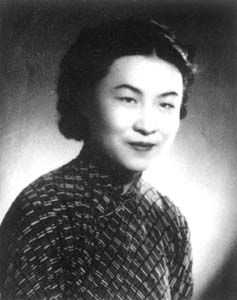
Their daughter, Qian Yuan (1937-97), was a professor of English with Beijing Normal University, and was in charge of evaluating the teaching of English in all teachers' colleges in China for the then State Education Commission.
But life was not always smooth sailing for the family. Aside from their love for their work and one another, the world around them confronted them with confusion and chaos.
The readers join the young couple in their daily shopping for fresh groceries from a small store on the street corner near their temporary home close to Oxford University in England.
They share not only their joy at having a new member in their family, their daughter Ah Yuan (Qian Yuan's childhood name, which meant 'round,' as her face was plump), but also their uneasiness through the years of war, political movements, separations and reunions.
As the three protagonists cope with life's twists and turns, the readers get to know the details behind their much respected scholarly achievements.
Tiny sprout
Qian Yuan's story forms the most touching part of the family memoir. In fact, the daughter was the first to suggest writing a book about their family. She wrote five chapters but left the work unfinished.
Six years after the passing away of her daughter, and five years after the demise of her husband, Yang Jiang set out to finish what her daughter had started.
Though Yang is extremely reserved in talking about the literary and scholarly accomplishments of her husband and herself, she does not hold back her high regard for her daughter.
Ah Yuan's first English sentence in her life was, "Baby yes eat," in response to her father's repeated "Baby no eat!"
In vivid language, Yang portrays her daughter sharing the same quirks and the same ingenuity as Qian Zhongshu.
Yang proudly claims, "Ah Yuan was the masterpiece of my life!" Her father deemed her "material suitable for high training," and her grandfather thought she was "a seed born for intellectual undertakings."
In poor health, she was forced to carry manure buckets in high school, to study under peasants and workers while in college, and sent to do political work at a factory after graduation.


















































